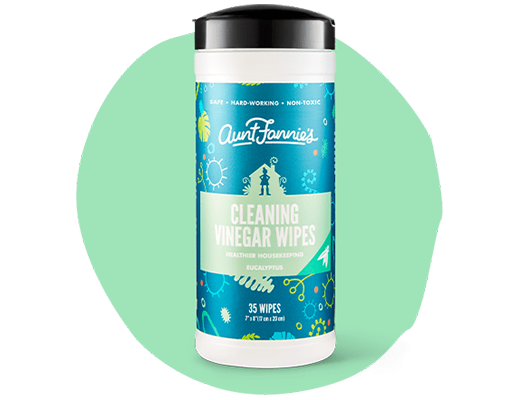Winter means Christmas movie marathons (Elf and Love Actually, anyone?), making the most of unexpected snow days, and windows that stay closed 24/7 to keep the house cozy as possible. But while it may save on heating bills and prevent seasonal shivers, keeping your home sealed tight isn’t actually great for your health.
When smoke, flu viruses, dust, mold spores, and other baddies can’t escape the house on the breeze, contaminants multiply—which is no bueno for your lungs. Here are a few simple tips for overcoming winter air quality challenges to keep you breathing easy until spring.
Have a wood-burning fireplace? Schedule an inspection and cleaning ASAP.
Nothing makes a winter night cozier than sitting in front of a real fire, but dirty chimneys spell disaster for indoor air quality. According to air quality officials in Washington state, fine particle levels in wood-heated homes are, on average, 26% higher than homes without wood-burning heat.
You can cut down on the amount of smoke in your fire by only burning dry wood, making sure your chimney is clean, and consider investing in a HEPA air filter to allow you to enjoy the ambiance without worry. Also, be sure to double check your smoke alarms and carbon monoxide detectors!
Be on alert for signs of mold and moisture.
Winter means snow and rain, which can lead to moisture buildup and roof leaks, which pave the way for mold and the health problems that come with it. If you don’t see mold but smell mold—imagine the smell of cracking open a really old book—it might be a good idea to bring in an expert to help identify the source and plan a course of action. And if you’re renting, be sure to alert your landlord to mold and moisture issues. Your health comes first!
Choose essential oils over candles.
Synthetic scented candles release Volatile Organic Compounds, or VOCs, into your home, negatively impacting indoor air quality. Scented paraffin candles unleash soot particles and known carcinogenic VOCs like acetone, benzene, formaldehyde, petroleum distillates, and toluene into the air when burned, the same chemicals found in diesel emissions! Swap wintry essential oils for your favorite pine-scented candle and enjoy the smells of the season without the risks.
Open those windows every now and then!
According to the EPA, the best way to reduce indoor air pollutants in your home is to increase the amount of outdoor air coming in! Because most heating systems don’t draw fresh air in, it’s important to introduce outdoor air into your home the old fashioned way. Open windows and doors for 15 minutes every day that it’s possible, install an attic fan, and be sure to use your bathroom, laundry room, and kitchen exhaust fans.
Wipe up dusty surfaces (and vents) to keep your heating system and home air filters flowing.
Removing dust before it has a chance to become airborne prevents allergens from building up in your breathing room. Vacuum with a HEPA filter-equipped machine and wipe down spaces where dust tends to accumulate once a week during the winter. Air quality bonus: choosing a truly safe solution like Aunt Fannie’s Cleaning Vinegar Wipes instead of cleaners loaded with harsh chemicals will also protect your lungs while you dust. Win/win!
Back to all posts